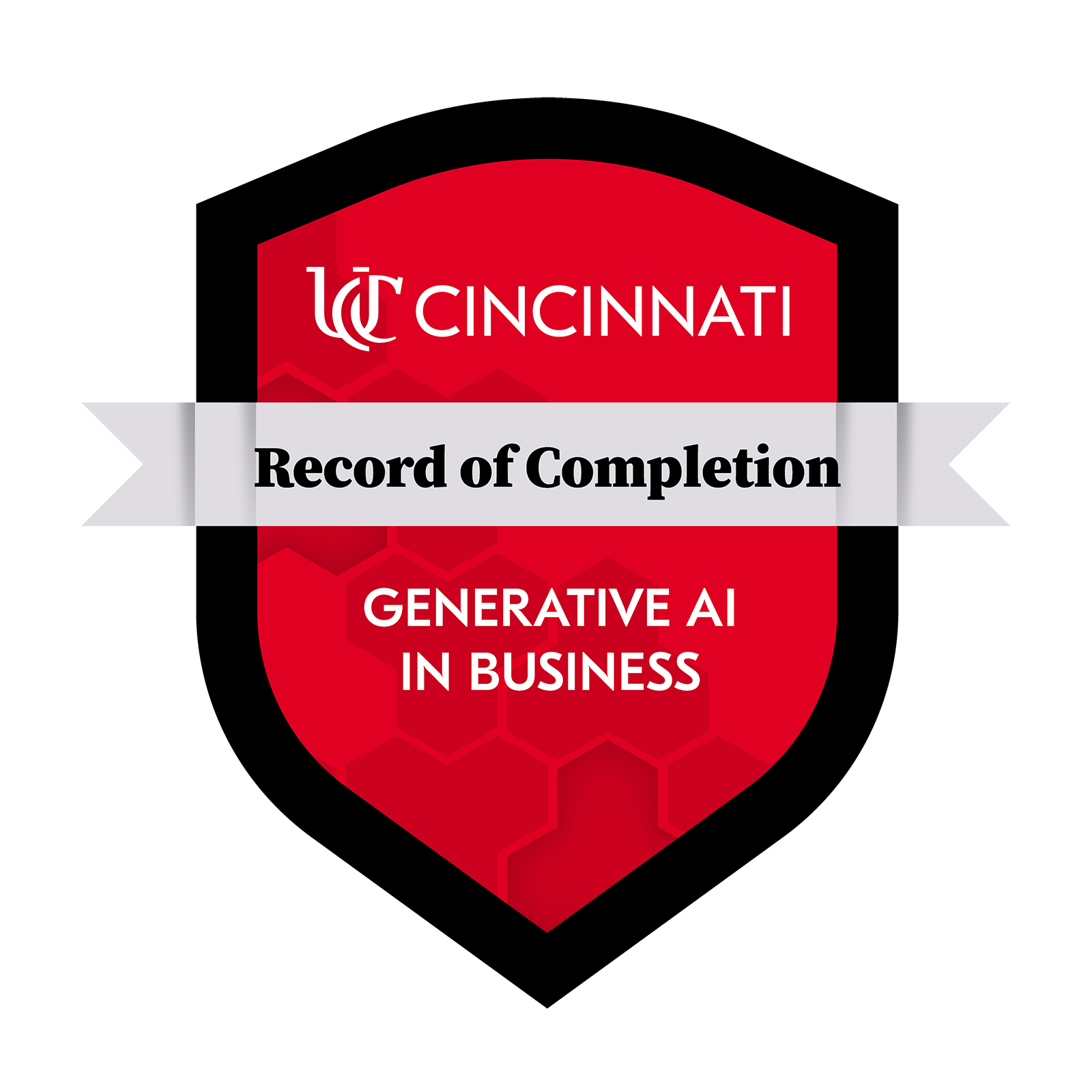CE-22PA1010X - Generative AI in Business: Applications, Challenges, Ethics, and Governance
Course Description
This expanded course, now delivered over four half-day sessions, offers a deeper exploration of prompt engineering and agentic workflows. Building on the foundational material, the course is designed to examine the emerging use of Generative AI (GenAI) in business, with a particular focus on its application in data analytics. Participants will delve into the fundamental concepts of generative models, such as GPT, BERT and diffusion, and examine their capabilities in various domains including translation, classification, text and image generation, and more. This course also includes critical discussions on the governance and ethics of GenAI systems, addressing the societal, ethical, and regulatory implications of these technologies.

Learner Outcomes
By the end of this course, learners will be able to understand, apply, and critically evaluate generative AI technologies, tools and ethical considerations across a range of practical and business context, including:
- Explain the core principles of Generative AI, including foundational models like GPT, BERT, and diffusion models.
- Apply advanced prompt engineering techniques (e.g., few-shot learning, chain-of-thought, role-based prompting) to optimize GenAI outputs.
- Design and implement agentic workflows using tools such as LangChain to automate multi-step processes.
- Evaluate and compare major GenAI platforms, including ChatGPT, Claude, Copilot, Hugging Face, and open-source models.
- Understand and navigate ethical and governance challenges related to privacy, bias, transparency, and regulatory compliance in AI systems.
- Utilize GenAI tools in practical business contexts, such as data analytics, document generation, and visual content creation.
Who Should Register?
This course is ideal for professionals, managers, analysts, and decision-makers across industries who are interested in:
- Exploring practical business applications of Generative AI in fields like data analytics, operations, and marketing.
- Gaining hands-on experience with advanced tools like ChatGPT, Copilot, and LangChain.
- Understanding the technical underpinnings of generative models and workflows without requiring prior coding or AI experience.
- Navigating the ethical, legal, and governance implications of AI adoption in enterprise settings.
- Preparing for leadership in a rapidly evolving technological landscape shaped by AI innovation and automation.
Carl H. Lindner College of Business
The Carl H. Lindner College of Business empowers business problem solvers to tackle the world’s challenges.
We fuel professional growth through our distinctive combination of academic and hands-on experiences: our problem-solving mindset, cooperative education, flexible pathways, inclusive community and vibrant, urban setting.
As the founder of cooperative education and consistently ranked Top 5 for co-op, the University of Cincinnati has exhibited its prowess for connecting students with top-notch employers. Co-op empowers students to explore career options, while building their professional skills, resumes and networks. Lindner is proud to further this powerful tradition.
Place, age or stage — students from a wide variety of backgrounds become problem solvers at Lindner. Begin your journey today.
